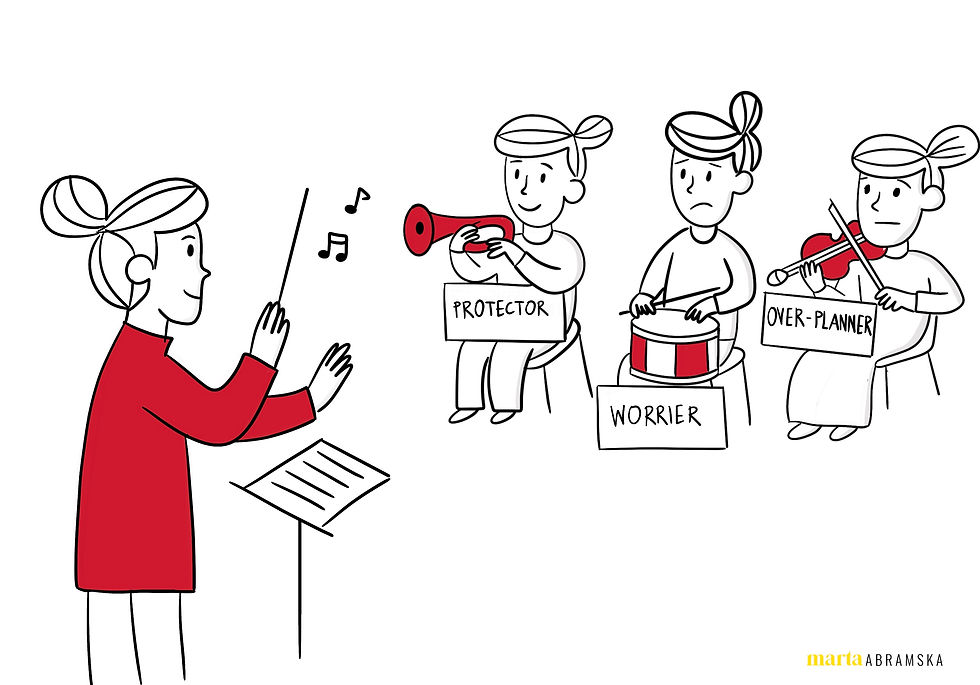3 questions to ask yourself if you Want to get promoted
- Marta Abramska

- Nov 24, 2018
- 3 min read
Updated: May 30, 2021
Diversity initiatives at work can be a checkbox exercise. Reflecting on the issues that women face in the workplace today, here are my thoughts on how to take matters in your own hands without having politics take over your work life.
And although I've been inspired to write this by my recent conversations with women, I like to think that the same principles apply to anyone.

As I reflect on the week just passed, I think back to all the stories I heard over the last few days. In coaching sessions, meeting new clients, and even talking to friends.
Everywhere around me are stories of ambitious women who want to progress in their careers, but are finding it hard to do so.
What gets in the way? A mixture of: politics of promotions, more or less subtle gender bias, the challenges of childcare, and their own self-doubt.
The proportions of these ingredients vary, but the cocktail is always potent.
I bet you have your own story too.
There is so much talk about diversity but the majority of companies are checking a box. Managers make empty promises under the spotlight of a diversity event but when they go back to the office they fall into the same old habits.
Just like that new year gym goer come February the 1st.
I once had the pleasure to work with a leader who set himself a goal of becoming a diversity role model. He was authentic in how he approached it and the effects were inspirational for people around him.
But let’s face it, we can't rely on finding a unicorn of a boss like that. And if no one can create the perfect conditions for us to flourish at work, the only way is to create them ourselves.
If you’d like to reflect on how to do this for yourself, I have 3 questions to help:
1. How aware are you of how others perceive you?
When you don’t get the career results you deserve, it pays off build more awareness. Even if you are getting feedback, you may or may not find it believable or useful. But there is almost always a second layer of understanding which is harder to get - the picture of how others see you.
However unfair, some of it may be out of your control - based on people's own bias and assumptions they make about you. But it pays off to be brave and find out what it is by seeking feedback or getting help from a mentor or someone you trust at work.
From there you can decide if you want to put the effort in to change it, or if you'd rather move on.
2. Are you creating enough space for being strategic?
Us women like to get things done. Many of us see networking and taking the time to form strategic alliances as a distraction. After all, that long 'to do' list won’t take care of itself.
You probably heard of the 80-20 rule that says that 20% of our actions create 80% of results.
Do you know what your strategic 20% is?
If you have a strong work ethic, I'm sure you do the non-strategic 80% really well. This is why your team loves you. But 80% is enough - don't make it 100%.
Create space for what makes you truly shine.
3. Do the right people know what you’re good at?
Branding is being known by the right people for what you're good at. I like to think of it as what people say about you when you're not in the room.
In the context of a career, it's not enough for your boss to be your advocate.
Actually - it can be risky to put your career into the hands of a single flawed, biased and distracted human (as we all are).
So who are the other people that need to know about your brilliance? How can you give them a chance to get to know you and experience your talents first hand?
To sum it up
You don't need to play dirty office politics to get that pay rise or promotion.
But leaving it all to chance is unlikely to pay off either.
You may think that these questions are not rocket science, and it's true - they aren't. But just as with healthy eating, it's not enough to know what's good for us, it's just the first step. Build an objective perspective of how to best position yourself given the reality of your workplace.
If you would like help with how to go about this, contact me to arrange an introductory session.



The best career is one that matches your strengths and personality. A career quiz is designed to help you discover those matches and give you the confidence to move forward.